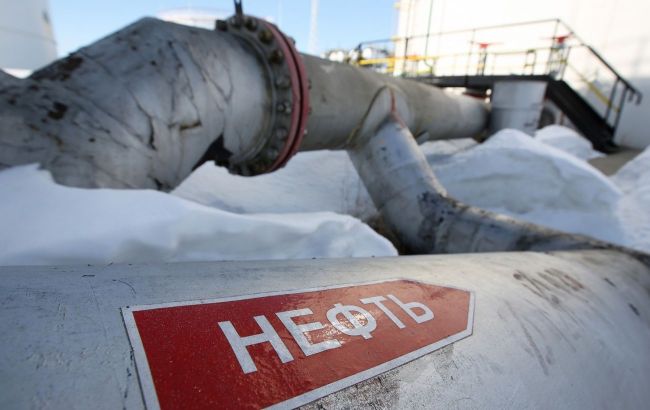Kremlin's oil revenues decline, but still close to annual peak - IEA
 Photo: The Kremlin's oil revenues are close to their peak for the year (Getty Images)
Photo: The Kremlin's oil revenues are close to their peak for the year (Getty Images)
Russia's oil export earnings in October 2023 fell from a previous peak as global oil prices fell and the US imposed sanctions on vessels that breach the Western price ceiling. However, revenues are close to an annual peak, the International Energy Agency (IEA) reports.
According to the IEA, Moscow received $18.34 billion from exports of crude oil and petroleum products last month, $25 million less than in September, "as lower international oil prices more than offset the reduction in discounts on Russian grades."
The IEA says that the first sanctions of the US Treasury, introduced as part of the Group of Seven price cap, contributed to a slight decrease in Russian oil prices in the second half of the month due to the increase in the cost of delivery.
However, as Bloomberg notes, Russia's monthly revenues from oil sales abroad remain near their highest level since October 2022.

www.bloomberg.com
Oil dollars are a key source of revenue for Russia's budget, which is burdened by huge spending on the war in Ukraine and the need to maintain spending ahead of the presidential elections in March. Oil and gas revenues have risen in recent months amid rising prices for Russian exports, which has reduced the country's budget deficit and given it more financial flexibility for the war.
The Group of Seven set price restrictions on Russian crude oil and oil products, seeking to limit the revenues of the Kremlin's budget, while not harming the global oil market. Shipments sold above the thresholds are not eligible for services such as shipping and insurance from Western countries.
The U.S. Treasury Department on October 12 imposed sanctions on two oil tankers and their registered owners in Turkey and the UAE because both vessels used U.S.-based service providers to transport Russian oil at a price above the cap.
As a result, by the end of October, the freight cost of Russian oil transported from the Baltic to the west coast of India increased by more than 35%, exceeding $10 per barrel and putting pressure on the price of Kremlin barrels, the IEA reports.
Oil prices
According to the IEA, due to the general decline in world oil prices, the weighted average price of Russian oil fell to $80.66 per barrel in October. However, it remains well above the $60 limit set by the Group of Seven, the data show.
While Brent lost $2.84 a barrel from last month, Russia's weighted average fell $1.13 as most cargoes of the Urals export blend were loaded in the first half of October when price conditions were more favorable, reports the IEA.
The total volume of Russian exports of crude oil and petroleum products in October decreased to 7.5 million barrels per day, "as the increase in crude oil supply could not compensate for the decrease in the flow of petroleum products."
Russia imposed a temporary ban on most diesel and gasoline exports at the end of September and only lifted restrictions on seaborne diesel shipments on October 6. The gasoline export ban is still in place.
The reaction of the USA to exceeding the price ceiling
US Treasury Secretary Janet Yellen said that Washington is preparing to take tough measures for violating the established oil price ceiling.
According to Reuters, the U.S. Treasury has requested shipping companies from 30 countries to provide information on approximately a hundred vessels suspected of transporting Russian oil above the price ceiling.

